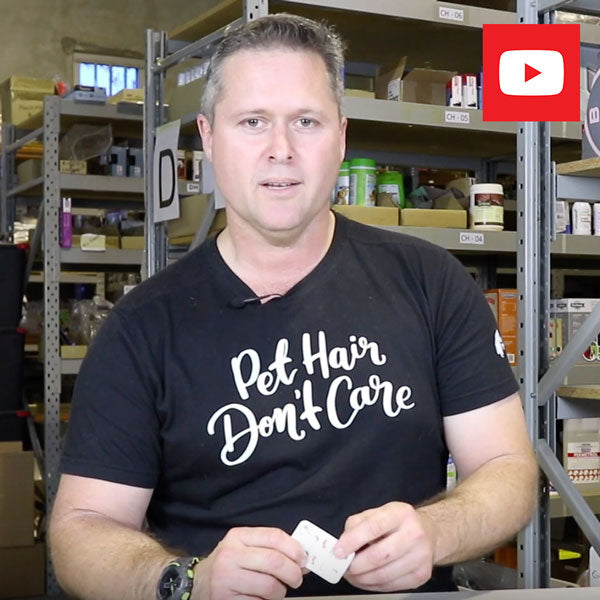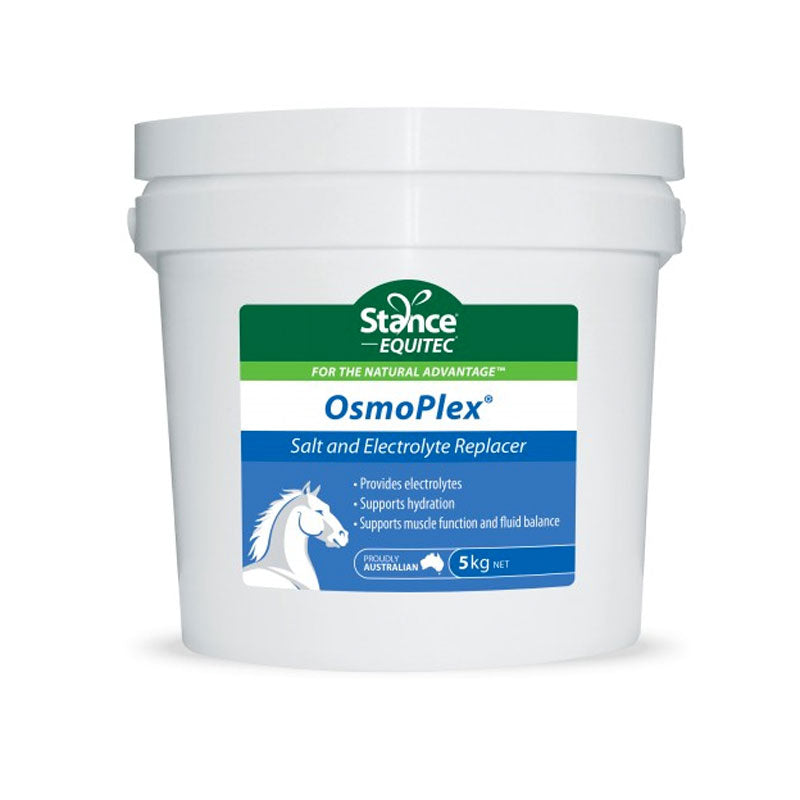Equitec Osmo-Plex is an Electrolyte Replacement. It increases water intake and
is a hydration maintenance formula.
Osmo-Plex has been formulated to help maintain osmotic balance in horses.
Osmotic balance assists to establish and maintain adequate retention of fluids in the intestines, cells and muscle tissue and in turn helps to avoid dehydration.
When specific osmotic nutraceuticals and minerals with high bioavailability are added to the diet the need for electrolytes is considerably reduced. This dietary approach is a natural means of maintaining hydration.
Note:
When a horse is badly dehydrated full rehydration can take from 72 hours to 96 hours. The duration of treatment for rehydration of the horse is relevant to the extent of dehydration in each case.
Research Details:
A group study conducted over 14 days with 20 horses showed an increase of between 25% and 30% daily water intake. These horses were previously drinking about 35 litres a day.
Another observation over 14 days with 2 horses that had previously been drinking 60 litres or more a day showed that their water intake reduced by approximately 20%.
Osmotic imbalance may be a precursor to dehydration and possibly tying up. We have observed horses that previously required saline drenching between races due to dehydration. Since they have been supplemented with OSMOPLEX they have not needed to be
drenched. Blood analyses have shown their electrolyte balance to be normal.
Many trainers rely on the pinch test to determine dehydration. This is not a method that can be regarded as being entirely accurate. Previous scientific studies as well as our own research have revealed that the slow return of skin fold is only evident when a horse is about 6% dehydrated.
Numerous case studies have shown that 2% dehydration is enough to reduce a horse's race performance.
The following are approximate guidelines for pinch testing of the skin:
1. Skin folds which remain creased after being pinched are usually in excess of 6% dehydration and require urgent treatment.
2. Skin folds which return back to normal slowly are an indication of approximately 4% to 5% dehydration.
3. Skin folds which return to normal instantly may be an indication of 1 to 3% dehydration.
The use of the pinch test or more accurately the pinch guess is a clear indication that there is a grey area of approximately 3 % when using this method to assess dehydration.
When we equate this to race performance 2% dehydration represents the loss of approximately 2 to 3 lengths over a distance of 1600 metres. The only accurate means of assessing hydration in a horse is through blood analysis and interpretation performed by a
reputable scientific laboratory.
SIZE:
5kg



















